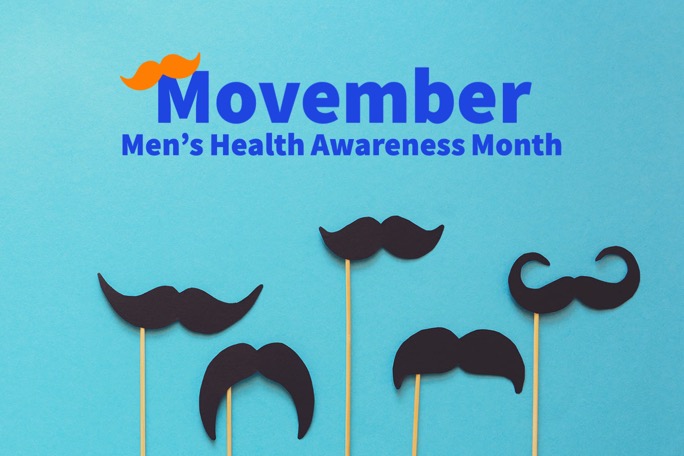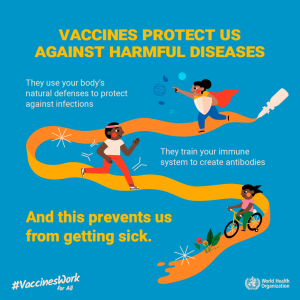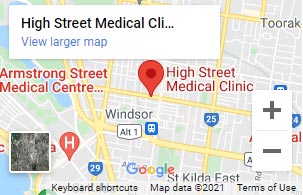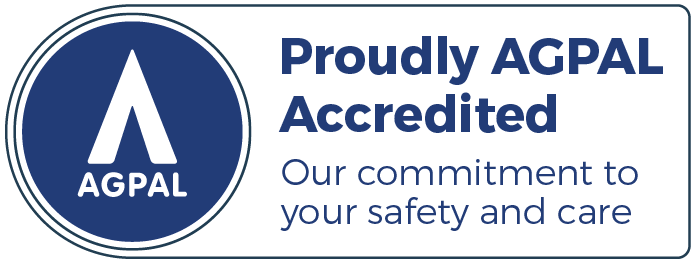Movember supports men’s health issues worldwide, and while you may sport a new moustache to support this global initiative, it’s time to speak up for men’s health.
Our fathers, partners, brothers and friends are facing a health crisis, yet it’s rarely talked about. Men are dying too young. We can’t afford to stay silent.
For a wide variety of reasons, men can find it difficult to seek help with their health concerns. If they break a bone, they won’t delay getting it fixed. But when it comes to prevention and seeking emotional support, seeking medical help is typically not a priority for men.
So, this Movember, while you and your bros experiment with a new ‘mo’ look, it’s time to shift your focus from treatment to prevention.
This year Movember is focusing on 3 key areas of men’s health:
- Mental health and suicide prevention
- Prostate Cancer
- Testicular Cancer
Mental Health and Suicide Prevention

First up, do men like me get depressed? Absolutely! Both depression and anxiety have a high lifetime prevalence, with an average of 1 in 8 blokes likely to suffer at some stage of their lives.
In addition, blokes make up to an average of 7 out of 9 suicides every single day in Australia. And even though the difference is striking, men are least likely to seek help.
Ignoring mental health issues doesn’t make them go away, but in fact, bottling up your concerns will only compound your problem. Seeking mental health support is totally normal, healthy, and can even be life-saving.
So what do you need to do?
- Start by recognising the signs and symptoms of your deteriorating mental health
- Talk about your feelings and keep in touch with your loved ones
- If things get too much for you to handle, reach out for help
- Consider seeking professional help from doctors, psychologists, or counsellors
Prostate Cancer

1 in 6 Australian men will be diagnosed with prostate cancer in their lifetime
What are your chances of developing prostate cancer? Did you know that if someone has a first-degree relative – meaning a parent or a brother with prostate cancer, their risk for developing the disease is 2.5 times higher than the others?
And even if you don’t have an inherited risk, the chances of developing prostate cancer increase greatly after you turn 50.
What’s more concerning about prostate cancer is that it is possible to have this disease for years without even realising. There are no symptoms during its early stages, and if it does, the symptoms are most likely to be a variety of urinary issues because of its proximity to the bladder and the urethra.
A good indicator of possible cancer is a PSA test or Prostate-Specific Antigen Test. It tells how significant your risks are. A higher PSA score would need a doctor’s visit immediately.
Early treatment is key to beating the disease, so it’s very important to know your risks and get screened if you have any concerns.
So what do you need to do?
- Ask about your options for PSA testing
- If you’re 40 years and above, consider getting screened
- And with any urinary health concerns don’t delay, make an appointment with your doctor.
Testicular Cancer

Should men be worried about testicular cancer? In Australia, about 850 men are diagnosed with testicular cancer every year, making it the number 1 cancer among young men.
Yet, 62% of those at risk of developing testicular cancer are unaware of how to perform a test by themselves. So if you think you’re one of them, you should be worried about testicular cancer.
A testicular self-examination should be performed once a month, soon after a warm bath. Check for signs including lumps, swelling or other changes. If you have any pain or feel any lumps, or anything unusual you should see a doctor.
Researchers are still not sure what causes testicular cancer. However, if you have a previous history of the disease or have undescended testicles, you need to be actively surveilling it.
Survival rates for testicular cancer are high, but it’s imperative that it is caught early.
So what can you do?
- Perform a monthly self-examination of your testicles
- Keep an eye for any change in the size and feel of the testicles
- Seek medical help immediately if you notice any changes because delaying can be dangerous
This Movember, get involved in your healthcare
Movember is a brilliant concept, and here at High Street Medical Clinic, we’re proud to support this initiative.
If you’re concerned about one of these men’s health issues or have any other concerns then please come and see us at our clinic.
Schedule your appointment today and stay safe.












